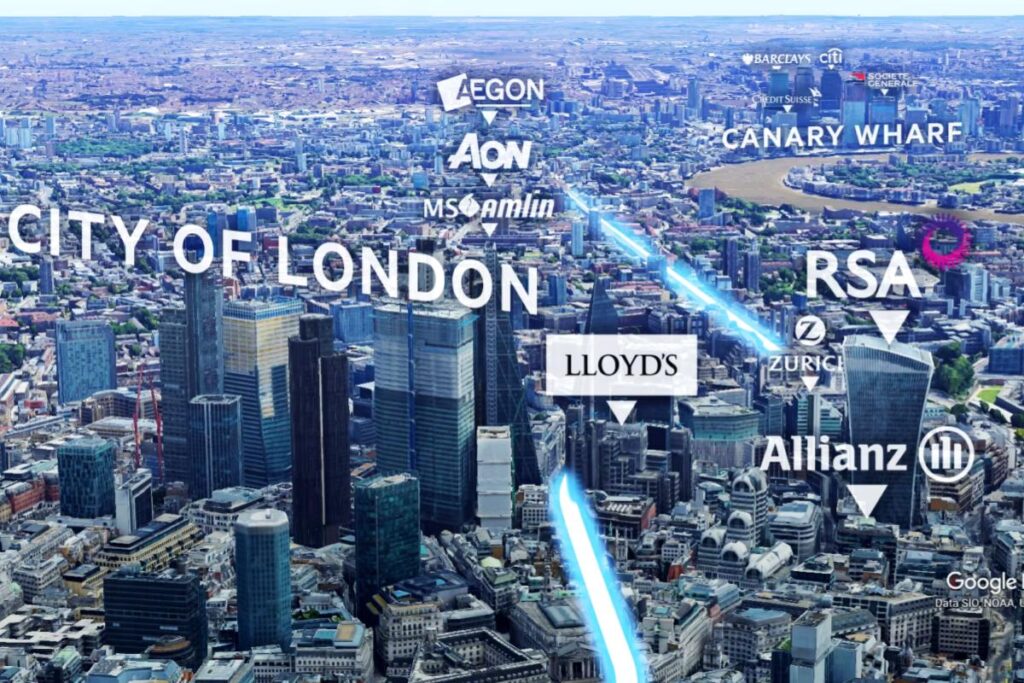Money Laundering in the City of London: Barclays is under investigation by the UK financial regulator, the Financial Conduct Authority (FCA), for suspected persistent failings in its compliance and anti-money laundering systems, reported FT this morning, citing reliable sources.
The FCA has expressed deep concern over the volume of reported incidents regarding the bank’s “know-your-customer” (KYC) and anti-money laundering (AML) measures.
The FCA’s notice of investigation, which was reportedly issued last spring, requires a thorough and independent review of Barclays’ systems and procedures to prevent and detect financial crimes. This review, known as a Section 166 or skilled person review, typically involves an external accountancy or law firm investigating and producing a report with recommendations for improvement.
..
..
While the individual cases of non-compliance at Barclays may have been minor, the accumulation of them raises alarm bells, according to sources. These types of reviews fall under the FCA’s supervisory authority, rather than its enforcement division, but if evidence of wrongdoing is found, the case can be referred for further enforcement action.
Barclays is set to report its annual earnings next week, but has not disclosed the Section 166 requirement in any previous filings. Neither the bank nor the FCA has commented on the investigation.
This probe is only the latest issue for Barclays, which has a history of clashing with regulators and struggling with compliance missteps in recent years. In November 2021, former CEO Jes Staley was forced to step down amid an investigation into his past relationship with Jeffrey Epstein, despite the support of the bank’s board. Staley has since appealed the decision.
In recent years, Barclays has also agreed to pay a $361 million fine to the US Securities and Exchange Commission, been fined $200 million by the SEC and the Commodity Futures Trading Commission for employees’ unauthorized use of encrypted messaging services, and had to pay £48 million in compensation to almost 1,500 customers who were improperly sold timeshare loans in Malta.
The FCA, under new CEO Nikhil Rathi, has pledged to take a more aggressive enforcement approach following a string of scandals and has repeatedly warned banks operating in the UK that their oversight and reporting systems must improve.
Other banks, such as HSBC, NatWest, and Santander UK, have also faced penalties for failing to properly manage their anti-money laundering systems and for missing red flags on suspicious cash flows.
Despite the recent enforcement actions against banks operating in the UK, the city of London continues to be used as a hub for money laundering, with billions of dollars of dirty money being laundered through its banks and financial institutions every year.
The persistent failings in the City of London’s banking system regarding compliance and anti-money laundering efforts greatly hinder the fight against corruption.
When banks fail to implement proper systems to prevent and detect financial crime, they become a hub for illicit activities, such as money laundering. The influx of dirty money into the financial system undermines the credibility of the financial institutions and corrodes trust in the economy as a whole.
This can also enable corrupt individuals and organizations to move their ill-gotten funds and continue to carry out corrupt practices, perpetuating the cycle of corruption. Therefore, it is imperative that banks take their compliance and anti-money laundering responsibilities seriously to ensure a stable and trustworthy financial system and to effectively tackle corruption.
Join us by subscribing to our blog and staying informed on the latest developments and ways you can make a difference. Together, we can create a financial system that is transparent, fair, and just for all.
..
February 10, 2023 Published by The Compliance Lady.







